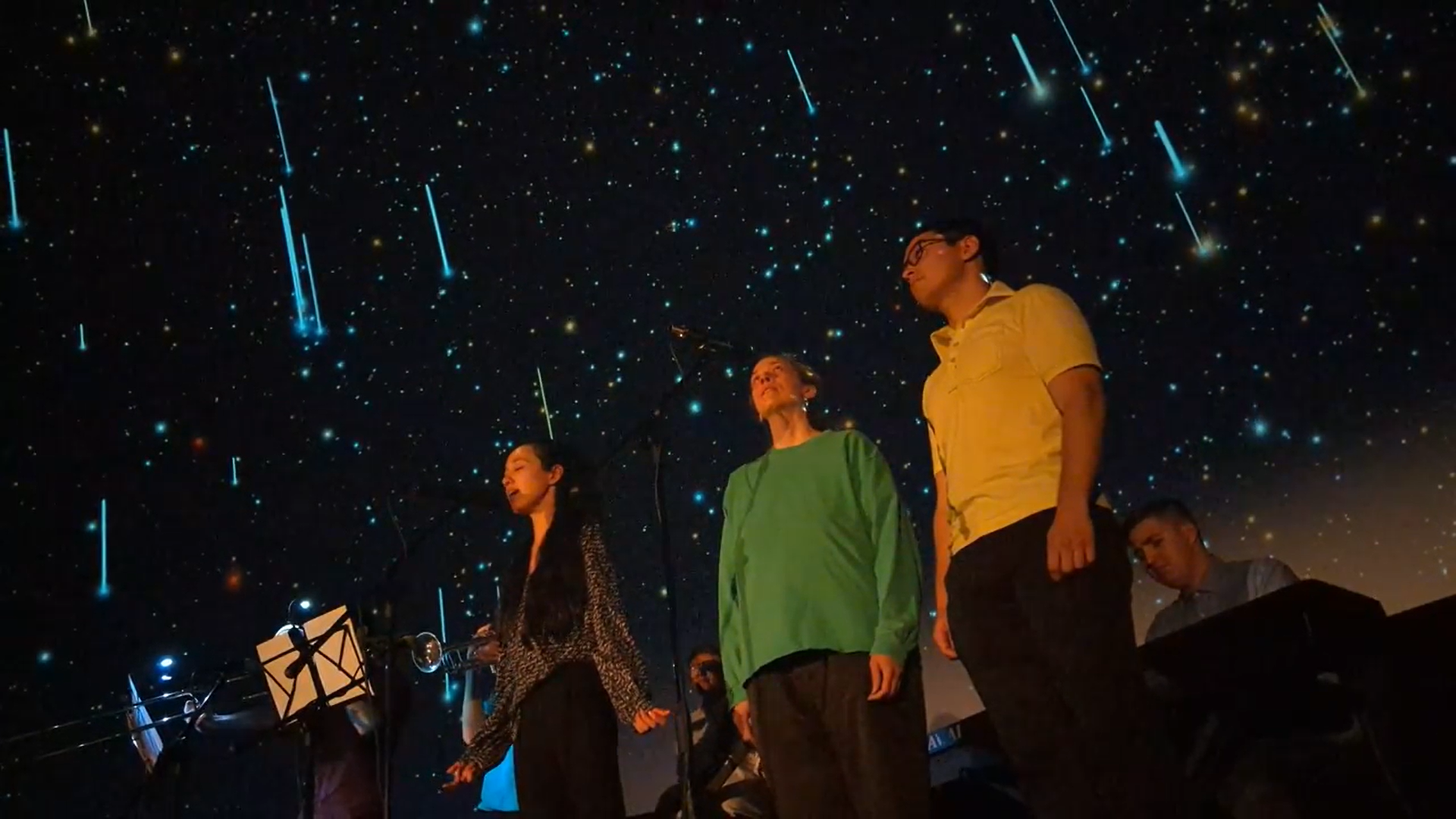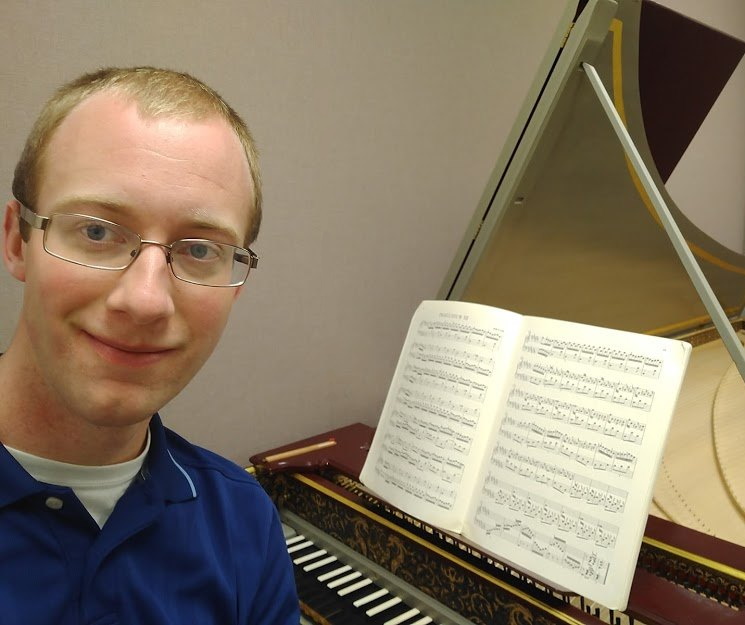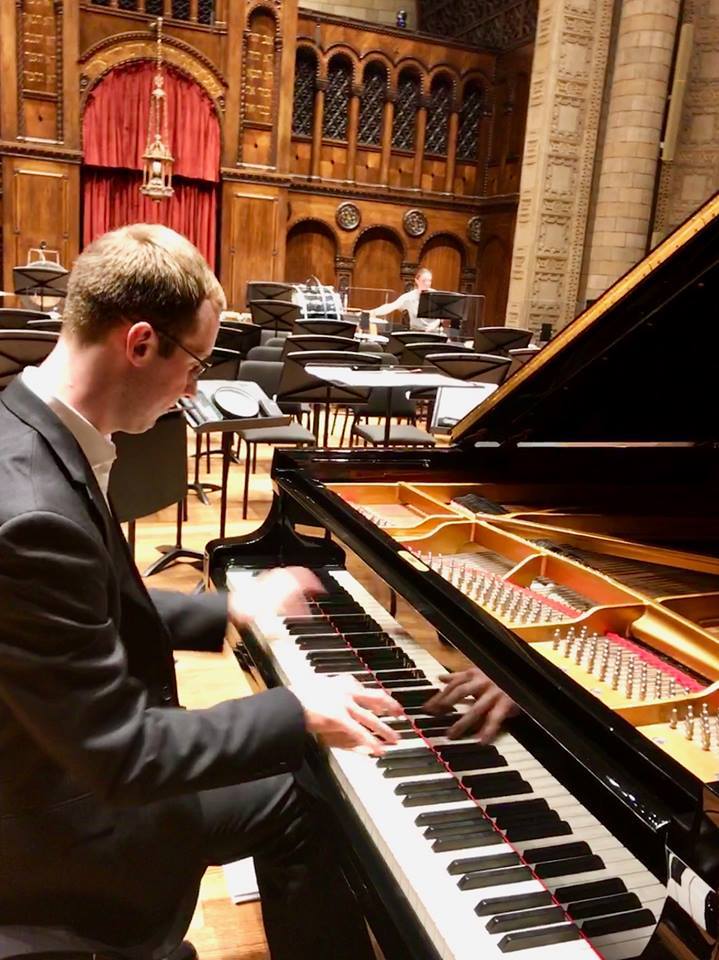I play the piano, organ, and harpsichord (and I also have dabbled with many other keyboard-type instruments like the celesta, carillon, or melodica). I have played in university-sponsored concerts, public concerts, weddings (if you or someone you know are getting married and need an organist or pianist, feel free to contact me!), funerals, weekly church services, and more.
I also do some composing and transcription work, the latter of which (specifically on harpsichord) formed the basis for my music degree's capstone work in 2018. I'm always looking for opportunities to collaborate with others and exchange ideas, so if you want to play together or have a project you want to make happen, let's talk!
Check out some of my performances and compositions in the Recordings ↓↓ section below.
Wait, physics and music?
Yes, physics and music do go together! Studies like this one have shown that top scientists are disproportionately more likely to engage in fine arts activities like music than the general public. Why?
- Physics and music are more similar than we think: both require a great deal of creativity and experimentation, both involve pattern recognition and understanding how individual elements fit together, both are enhanced by collaboration, and both require presentation skills as you share your work in front of an audience (though physicists are often much worse at this!).
- Having a passion outside of my day-to-day physics work keeps my mind fresh and not overworked. There are wonderful anecdotal cases for how music has helped with researchers' mental health and general productivity, and even Einstein took breaks at the piano to help him think while coming up with his theory of general relativity.
- Music can directly benefit scientific research. The studies of Helmholtz and the experiments that first confirmed Galileo's law and the Dopper effect would not have been possible without the help of musical concepts and musicians themselves. Even today, data sonification is used to help reveal underlying patterns in scientific data. And on the flip side, many of the modern musical instruments like the piano and musical systems like equal temperament would not have been possible without great developments in mathematics, physics, and engineering.
- Music can be a powerful tool for science education. And I don't just mean performing "science raps" to cater to high school teens. There are entire conferences on how music can help inform science instruction, increase student engagement, and teach concepts in novel ways.
Grand Canonical Ensemble

In the wake of a global pandemic, and in light of all the reasons discussed above, while at CU Boulder I founded the Grand Canonical Ensemble, a community music ensemble initially comprised almost entirely of physicists at the university. The group is open to people of all levels, from students to emeritus professors. We often perform works composed by scientists, whether from the classical repertoire, jazz, rock, or even from current members of the university who compose music. At the end of each semester, we hold a concert, sometimes under the dome at the Fiske planetarium, which always attracts a full crowd!
Recordings can be found on YouTube for some of our recent concerts, including those from Spring 2023, Fall 2023, and Spring 2024.
Recordings
I post all my musical recordings on my YouTube channel, so be sure to visit that link for more music.
I play piano:
and harpsichord:
and organ:
I also create musical visualizations and sonifications of scientific data:

